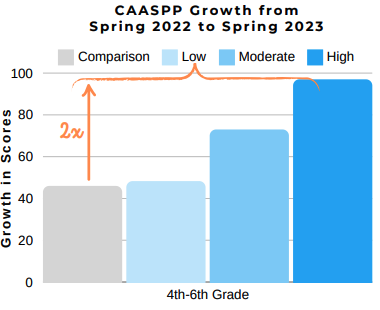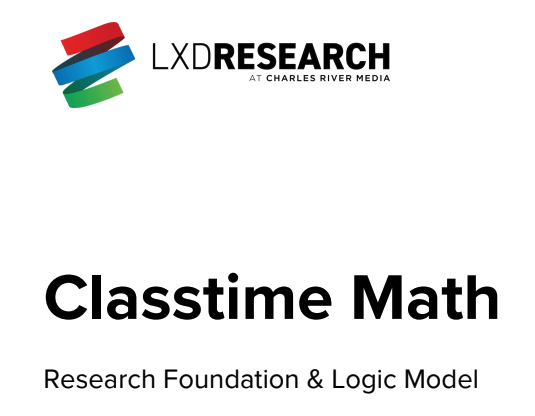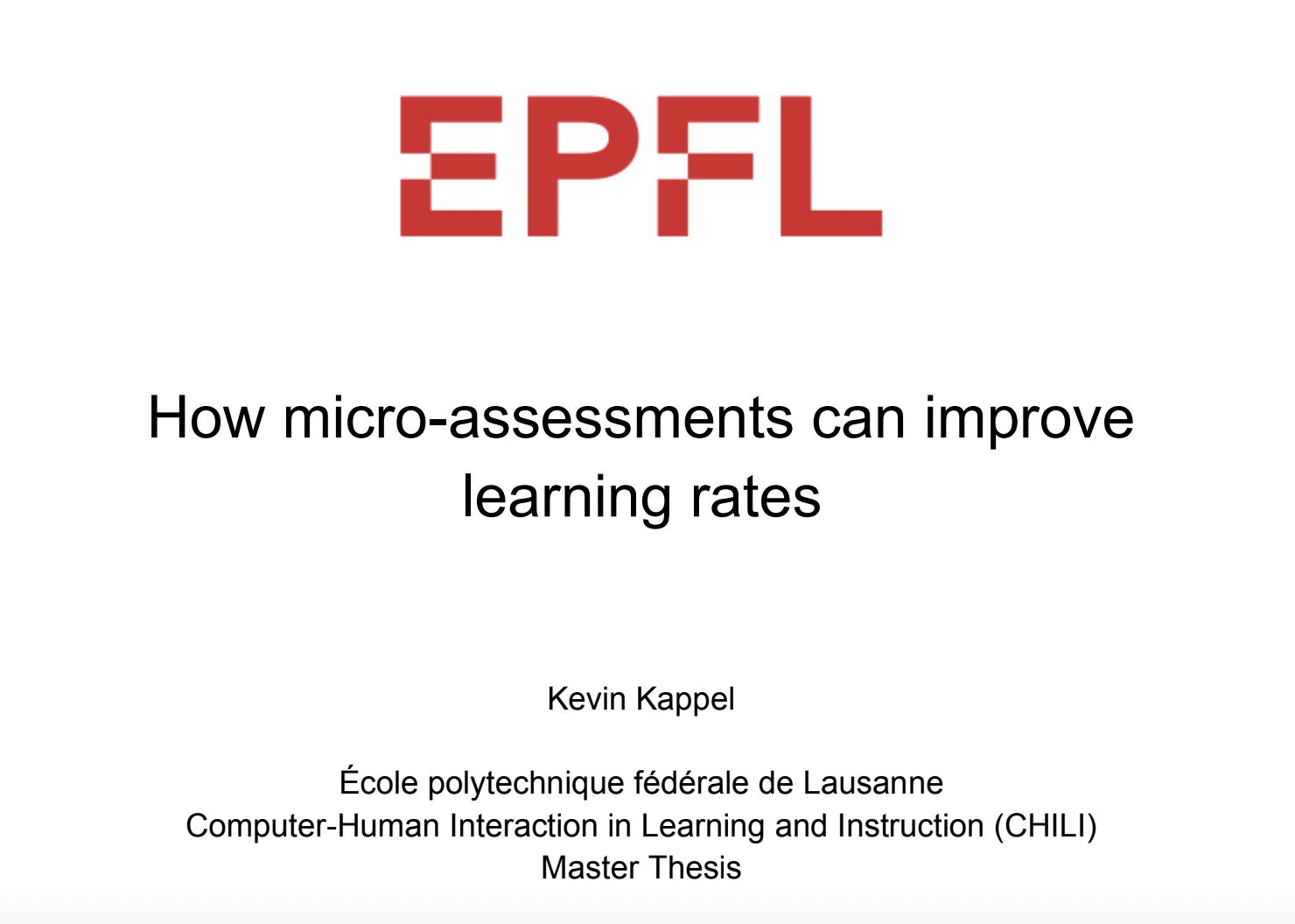Classtime's technology and methodology is supported by rigorous research from independent organizations, demonstrating strong evidence on student outcomes. Explore our research findings on Classtime's evidence-backed approach.


Accelerating Math Achievement with Classtime: The Impact of Tech-Enhanced Formative Assessment on CAASPP in Grades 3-6


The Classtime Logic Model is supported by an evidence-based and sourced preamble, offering a comprehensive vision for the math assessment platform.


Classtime is acknowledged for meeting the educational impact criteria of the Every Student Succeeds Act, warranting that it "Demonstrates a Rationale."


This study presents a case study analyzing the effects of micro-assessments, both with and without utilizing Classtime as a key component.

Strategic Thinking in Math Assessments: Classtime formative assessments are aligned with the eight Standards of Mathematical Practices and cover every CCSS math standard for grades 1-8. These assessments are designed to evaluate students' understanding and strategic thinking capabilities in math. Teachers assign assessments for students to complete in-class work or homework 15-30 minutes per week. They can also project math questions to the class and discuss various types of Strategic Thinking, engaging in whole-class discussions around specific assessments. Students access visual mnemonics to reinforce Strategic Thinking Types and references during math practice
Real-time Actionable Data (“Teacher Dashboard”): The assessment platform immediately reports data on students who are struggling with content, math-specific item types, and formats, or strategic thinking. This feature allows teachers to make timely interventions and adjustments to their instructional strategies. Assessments are pre-built and include AI-supported auto-grading and concise reports. Teachers first identify specific question sets similar to the unique question types seen on relevant high-stakes tests. They can assign these sets as assessments to their class, ensuring that students are familiar with the exam format. Once students start interacting with assignments, teachers analyze results and spend 10-20 minutes weekly selecting and assigning appropriate question sets for reviewing topics or teaching new content.
Technology similar to High-stakes Testing (“Student Interface”): The Classtime assessment platform mirrors the unique item types and formats students encounter on high-stakes math assessments, helping educators prepare students for the exam format and requirements. Students engage with Classtime assessments for 15-30 minutes weekly, providing regular, short-duration, and consistent exposure to strategic thinking in math without overwhelming students. They participate in class-wide cooperative challenges that boost engagement and motivate students to maintain and boost their skills to support their peers. Teachers adapt their instruction to more explicitly include instruction and practice of assessing Strategic Thinking Types, such as revisiting basic math concept practices within their curriculum or projecting a specific strategic thinking question to practice explaining student thinking.
Sessions are delivered in person or online, with an introduction to Strategic Thinking in Math as early as possible in the school year (3-6 hours), followed by grade-specific sessions in the fall and again in the spring (1-2 hours). Classtime professional development sessions are designed to inform educators on:
- Using the Classtime platform and its specific features.
- A thorough understanding of the 16 Strategic Thinking Types and their importance in learning math.
- How to analyze questions to determine appropriate Strategic Thinking Types.
- Modeling activities that promote various Strategic Thinking Types.Best practices for recognizing and instructing on the Strategic Thinking Types to improve test scores.
Schools are eligible for funding assistance under the Every Student Succeeds Act (ESSA). The two categories for ESSA assistance are Comprehensive Support and Improvement(CSI) and Additional Targeted Support and Improvement (ATSI). Additional funding is currently only available for CSI, not ATSI. Evidence-based interventions, like Classtime, must be identified as part of the improvement plan for CSI schools and are one of the few categories that can be purchased using these funds.